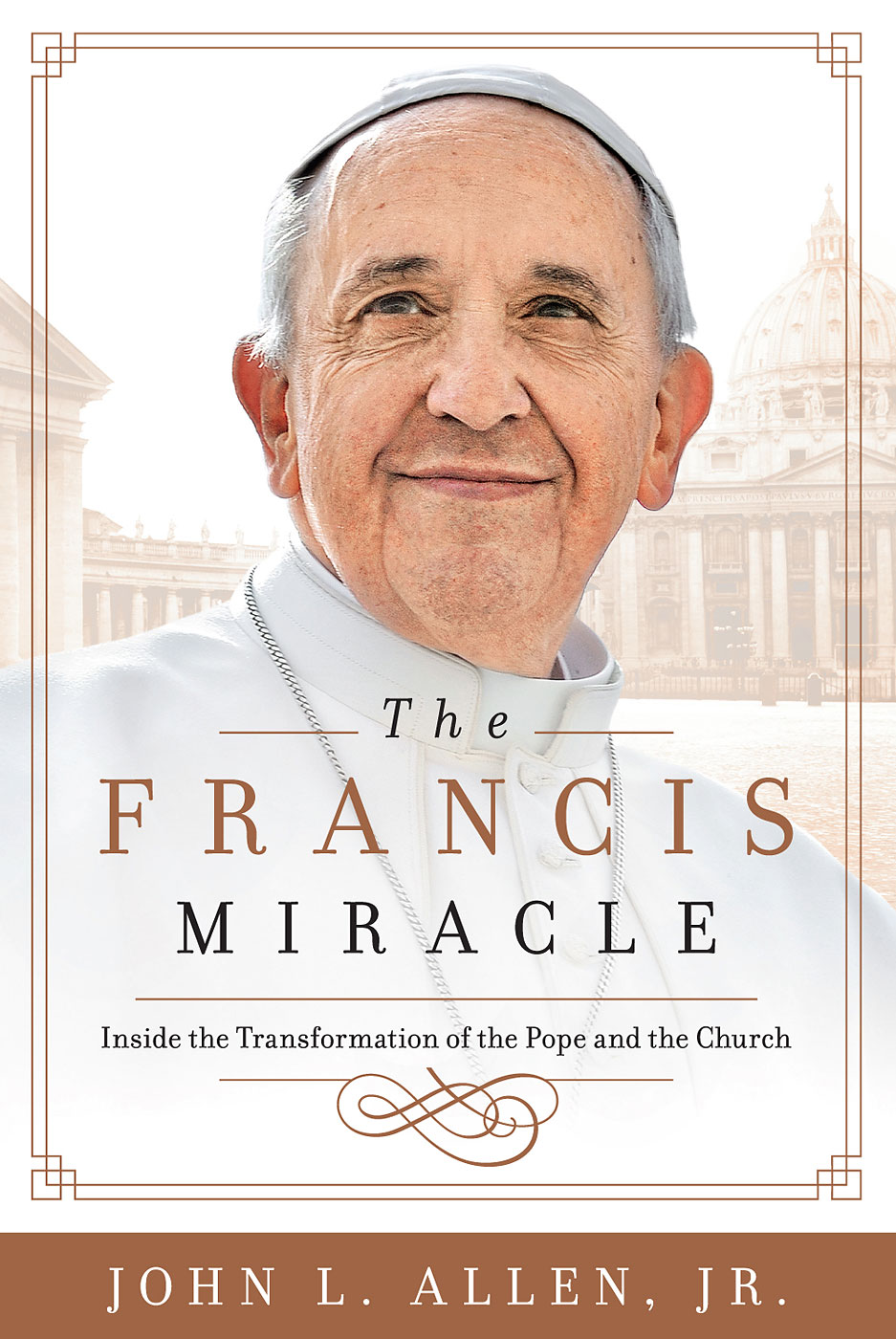
Though one probably should be cautious in using such language about a religious leader, Pope Francis seems to have painted himself into a “damned if he does, damned if he doesn’t” corner with regard to a mounting Catholic debate over divorce.
Whether a result of cunning, naiveté, or simply the inescapable dynamics of a trying to change a divided church, Francis has created a situation in which somebody is going to feel betrayed no matter what he does.
In a nutshell, Catholicism teaches that marriage is between a man and a woman (hence “no” to gay marriage), permanent (hence “no” to divorce), and must be open to children (hence “no” to birth control). Despite his reputation as a maverick, Francis has made clear that teaching will not change.
Yet there’s long been debate about how to care for believers living beyond the official boundaries, especially those who divorce and remarry outside the Church.
Under church law, such folk should be denied the sacraments of communion and confession. In practice, some priests and bishops over the years have quietly encouraged them to come anyway. It’s particularly tempting when the person isn’t at fault for the breakdown of the first marriage – for instance, a woman whose husband walked out – and who now has children in a second marriage.
There’s no precise estimate worldwide, but according to Georgetown University’s Center for Applied Research in the Apostolate, some 4.5 million Catholics in the United States are divorced and remarried without an “annulment,” a declaration from a church court that the first marriage was invalid.
During the more relaxed Pope Paul VI era in the 1970s, the Vatican signed off on what’s known as an “internal forum” solution, meaning that a Catholic makes a private decision in conscience to take the sacraments, approved by a priest acting as a confessor. Pope John Paul II in 1981 reasserted the communion ban.
In 1993 a handful of German prelates, including Walter Kasper, then the Bishop of Rottenburg-Stuttgart and today a cardinal, announced they would welcome the divorced and remarried to communion anyway. Their stance triggered a Vatican crackdown the next year by then-Cardinal Joseph Ratzinger, the future Pope Benedict XVI.
That’s where things stood until Francis, who’s sent mixed signals. In February 2013, the pontiff tapped Kasper to re-open a debate among cardinals about inviting the divorced and remarried back to the sacraments in at least some cases, but has also allowed several of his own aides to insist publicly that change is impossible.
Fueling controversy even more, Francis has called two summits of Catholic bishops, called “synods,” on family issues. A synod can’t decide anything; it can merely offer advice to a pope. But it’s a useful x-ray of where the world’s bishops stand.
During the first, held last October, battles lines were drawn for and against the “Kasper proposal” to loosen the rules, and signs are that the clash will be even more intense during round two this October.
In recent weeks, 500 conservative priests in the U.K. published an open letter asking the synod to defend the communion ban, prompting their more moderate boss, Cardinal Vincent Nichols of Westminster, to tell them to keep their advice out of the papers.
Cardinal Reinhard Marx of Munich, also a moderate, hinted that the German bishops might go their own way regardless of what the synod decides. His position was decried as “absolutely anti-Catholic” by fellow German Cardinal Gerhard Müller, the Vatican’s top doctrinal overseer, and better suited “to the counter of a bar” by another more conservative German, Cardinal Paul Cordes, a former Vatican official close to Pope Benedict.
Staunchly conservative American Cardinal Raymond Burke warned in a recent interview that “confusion is spreading in an alarming way.” In a speech to German bishops, Swiss Cardinal Kurt Koch actually compared calls to water down church teaching to the way some German Christians went along with Hitler.
Meanwhile, the influential Cardinal Luis Antonio Tagle of the Philippines, a Catholic rock star across Asia, came out in favor of making the rules more flexible. “Every situation for those who are divorced and remarried is quite unique,” Tagle said in a speech in the U.K. in mid-March. “We cannot give one formula for all.”
Though it’s common for Catholics at the grassroots to slug it out like this, cardinals doing so in full public view is unusual. It reflects a sense that the stakes are high, for a couple of reasons.
For one, Popes John Paul II and Benedict XVI took a clear stand on the issue. If Francis were to roll it back, it could send a signal that all papal edicts are only temporary, undercutting the ancient dictum that “Rome has spoken, the case is closed.”
For another, the dust-up over divorce and remarriage often functions as a proxy for more contentious matters, such as women priests or birth control. If a pope is willing to break with the past here, some hope and others fear, perhaps change will come elsewhere.
Francis is a pope of surprises, making it difficult to predict what he’ll decide. It’s far easier to forecast that whatever happens, a sizeable chunk of the Catholic Church is going to be deeply disenchanted.
John L. Allen Jr., is the author of THE FRANCIS MIRACLE: Inside the Transformation of the Pope and the Church, published by Time Inc. Books.
More Must-Reads from TIME
- Donald Trump Is TIME's 2024 Person of the Year
- Why We Chose Trump as Person of the Year
- Is Intermittent Fasting Good or Bad for You?
- The 100 Must-Read Books of 2024
- The 20 Best Christmas TV Episodes
- Column: If Optimism Feels Ridiculous Now, Try Hope
- The Future of Climate Action Is Trade Policy
- Merle Bombardieri Is Helping People Make the Baby Decision
Contact us at letters@time.com